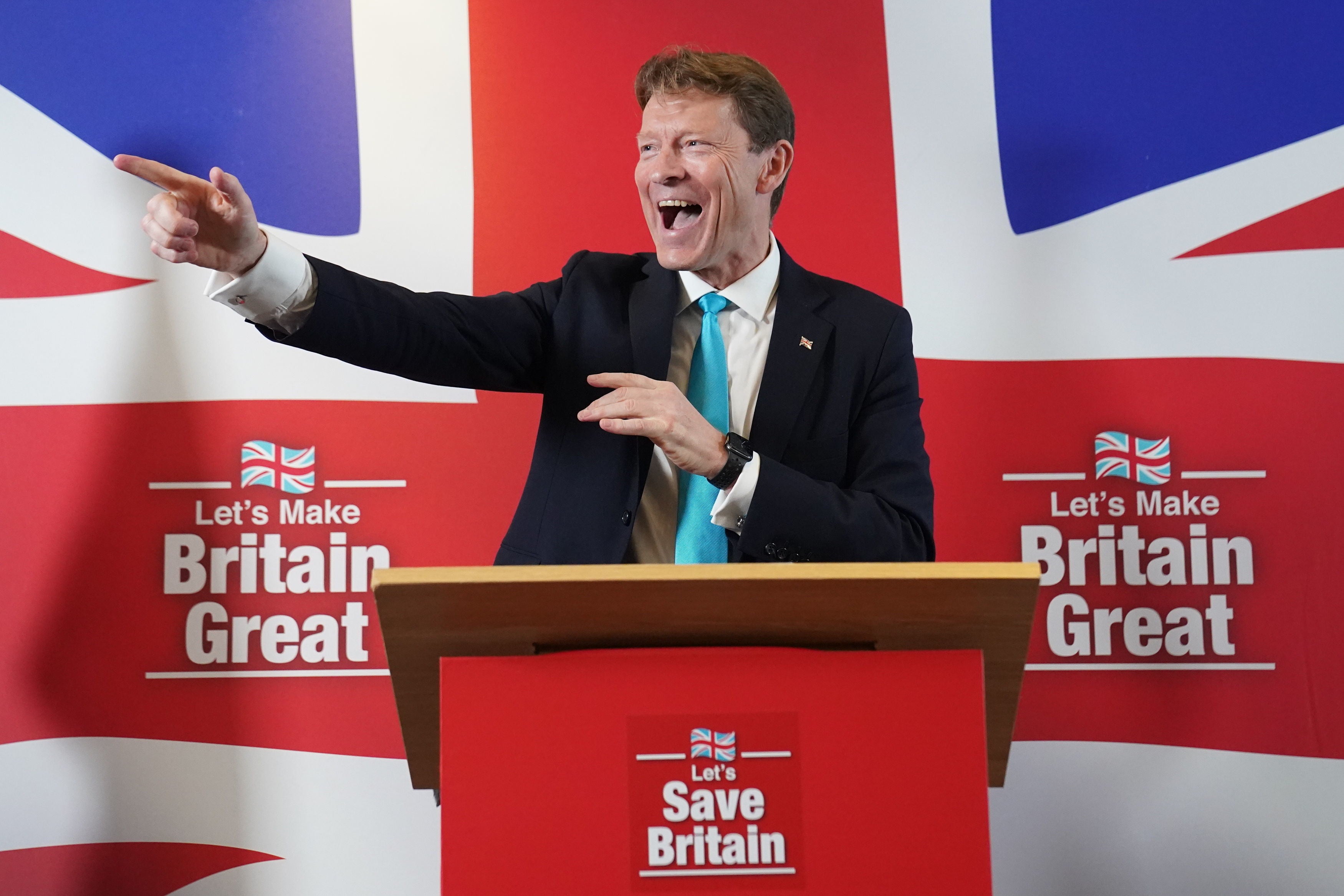How Reform UK could reshape the election – and the Tories
Nigel Farage might not be standing for parliament but his party can still change the future of Britain’s right, says Sean O’Grady


Richard Tice, leader of Reform UK, says his party will contest all 632 seats in England, Wales and Scotland at the next election. His avowed aim is to take votes from all the other parties but there’s no doubt Reform will mostly attract disaffected Conservatives, costing Rishi Sunak some parliamentary seats.
In the past, Tice – and his party’s president, Nigel Farage – have talked about their ambition to destroy the Conservatives. It stands in contrast to the approach taken in 2019 by the Brexit Party, Reform’s predecessor, which stood down in Tory-held seats, ostensibly to get Boris Johnson’s Brexit deal implemented. Tice says a win for Labour would mean “Starmergeddon”. Farage was absent from the party’s new year event.
Will the Reform UK strategy work?
Yes. As a repository for ex-Conservative voters, especially those recruited for the first time after the Brexit referendum and at the 2019 election, Reform is an ideal vessel for those disillusioned with the government. At a guess, the Reform intervention will cost the Tories even more seats than it did in 2019 because it will now be standing in all Conservative-held constituencies, irrespective of the Eurosceptic credentials of any incumbent; apparently, even a natural ally such as Lee Anderson will not be spared. So Sunak will probably lose anything between 10 and 30 seats, mostly to Labour.
In a hung parliament, that would deprive the Tories of any chance of forming another government, and thus would most likely put Labour in. With a (more likely) Labour landslide, it will make little practical difference – except to make the post-defeat task of rebuilding the principal right-wing party in British politics that much harder by possibly depriving the Tories of Suella Braverman and Kemi Badenoch as leadership contenders in otherwise safe seats. Of course, all this suits Tice and Farage, who seek to realign the right and push Reform and the Conservatives in effect into one populist nationalist hard-right bloc.
Wouldn’t Farage make a difference?
Of course. Without being unkind to the urbane Tice, Farage has got the profile and charisma, having been around for so long, and there’s a loyal fan club out there (as well as a fairly large chunk of the electorate who find him repulsive). If Farage was to play a prominent role in the election campaign, he would boost Reform’s vote, though Brexit isn’t the motivating force it once was.
Reform is currently polling at around 5 to 10 per cent, which might stretch to about 15 per cent with Farage involved; but there is some doubt about its true popularity because the party is new and pollsters vary in their techniques. The trend is unmistakably upwards, however.
What role will Farage play?
All the signs are that he hasn’t yet decided but will probably just be a high-profile campaigner rather than standing for a Commons seat, having failed in his previous seven attempts to get into parliament. But as “president” and majority shareholder of Reform UK Party Limited. he can do whatever he likes and could make himself leader without any need for a leadership election; Reform UK has no grassroots control in any meaningful sense.
How many seats will Reform UK win?
None. Their predecessors, Ukip and the Brexit Party, found little success in general or parliamentary by-elections. Tice contested Hartlepool in 2019, at the height of the Brexit tumult and secured 25.8 per cent of the vote – respectable, but far from enough to take the seat. At a subsequent by-election there, his party’s candidate, John Prescott (no relation) scored a miserable 1.2 per cent. Reform has also performed poorly in local elections and parliamentary by-elections. Tice seems committed to contesting Hartlepool again this year but Reform will be victims of the Labour revival in red-wall areas.
What is Reform UK offering?
“Net zero” migration is one eye-catching initiative – meaning a “one in, one out” approach, irrespective of economic needs. It’s something of a renunciation of the “Australian-style points-based system” that Farage advocated during the 2016 Brexit referendum campaign (and which was adopted by the Conservatives).
Aside from that, Tice says: “Only Reform UK is now the party of the working class, who will stop mass immigration, who will scrap net zero, who will help solve the cost of living crisis." He wants to increase the threshold when people start paying income tax to £20,000, as well as cutting fuel duty and taxes for businesses - and abolishing NHS waiting lists.
When will we know their chances of success?
The next big test will be the Wellingborough by-election, to be contested for Reform by joint deputy leader Ben Habib. Habib is an articulate and particularly intense character with an almost visceral hatred of the current Tory leadership but should suit the highly Eurosceptic seat vacated by Peter Bone. Habib will probably contribute to the Tories losing the seat to Labour, triggering some panic among Conservative backbenchers. That will destabilise Sunak, further weakening the Conservatives and pushing them that much closer to extinction or, as Farage would wish, falling into his hands.





Join our commenting forum
Join thought-provoking conversations, follow other Independent readers and see their replies
Comments